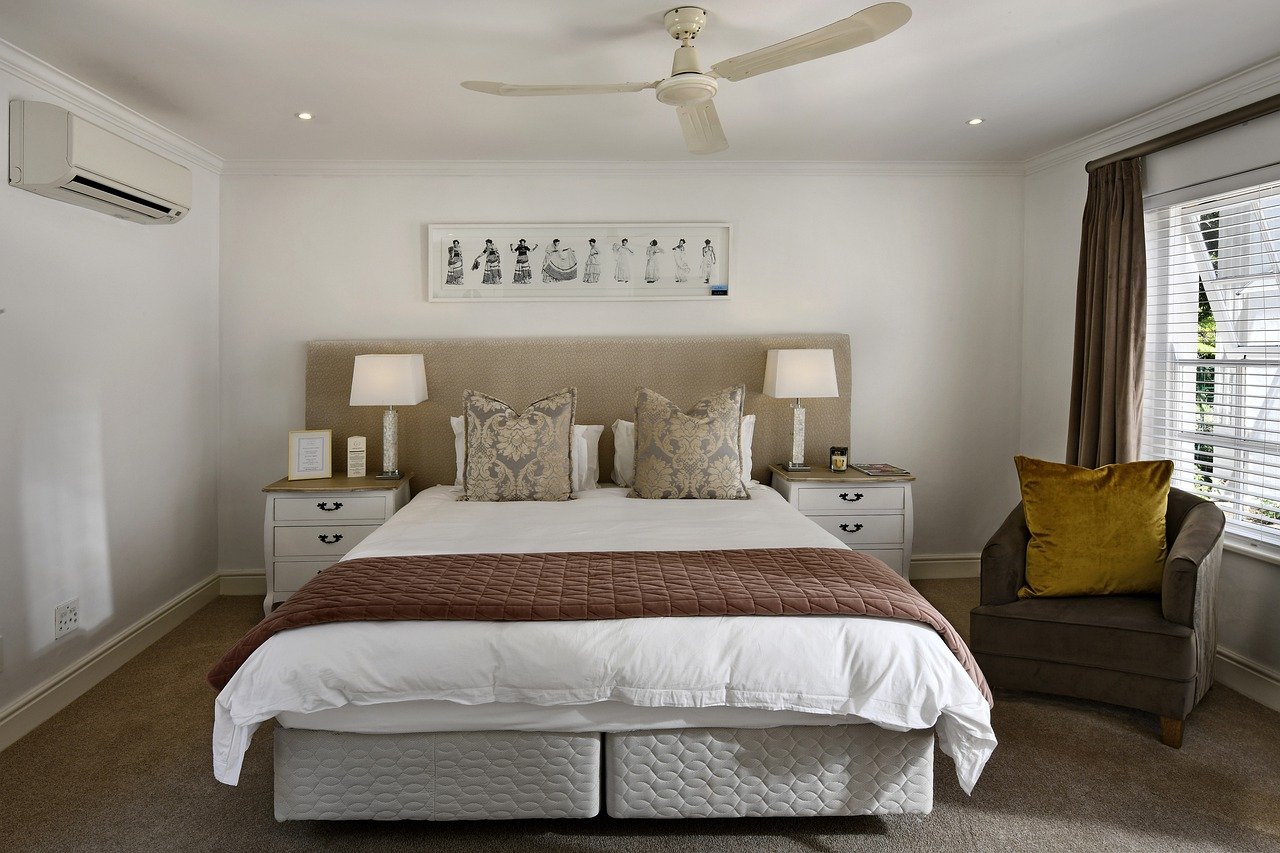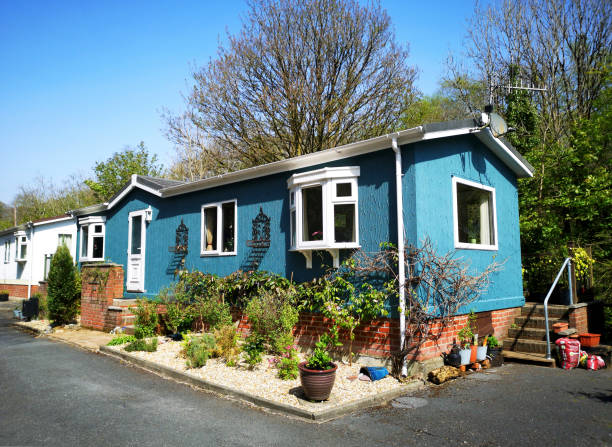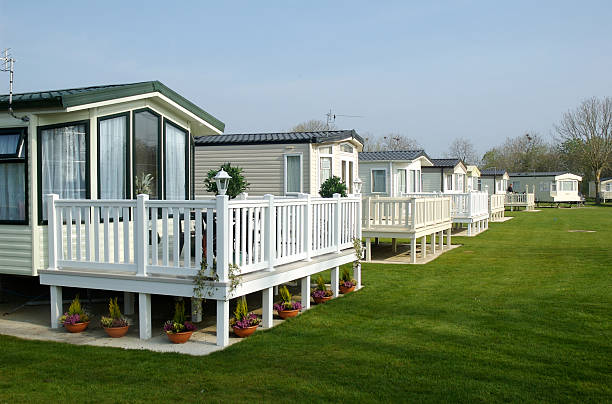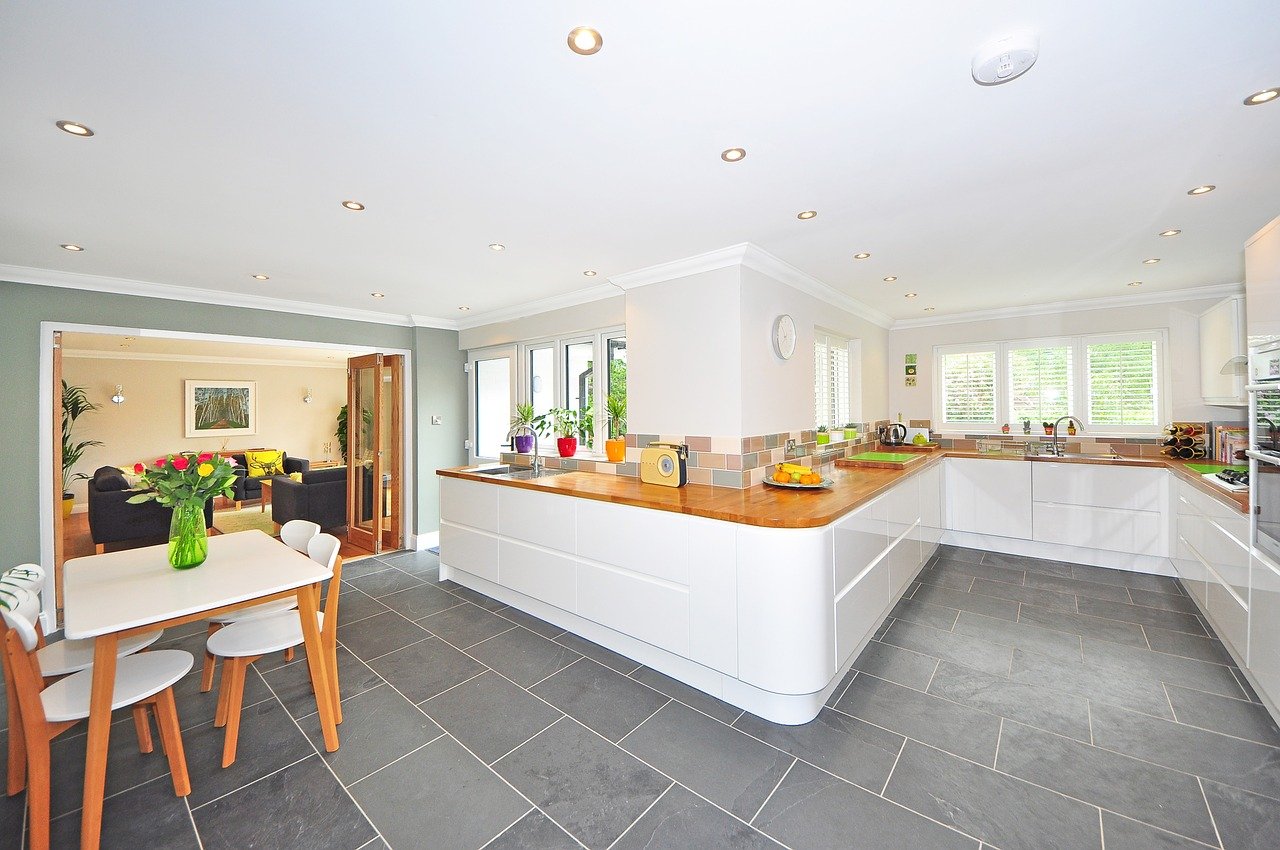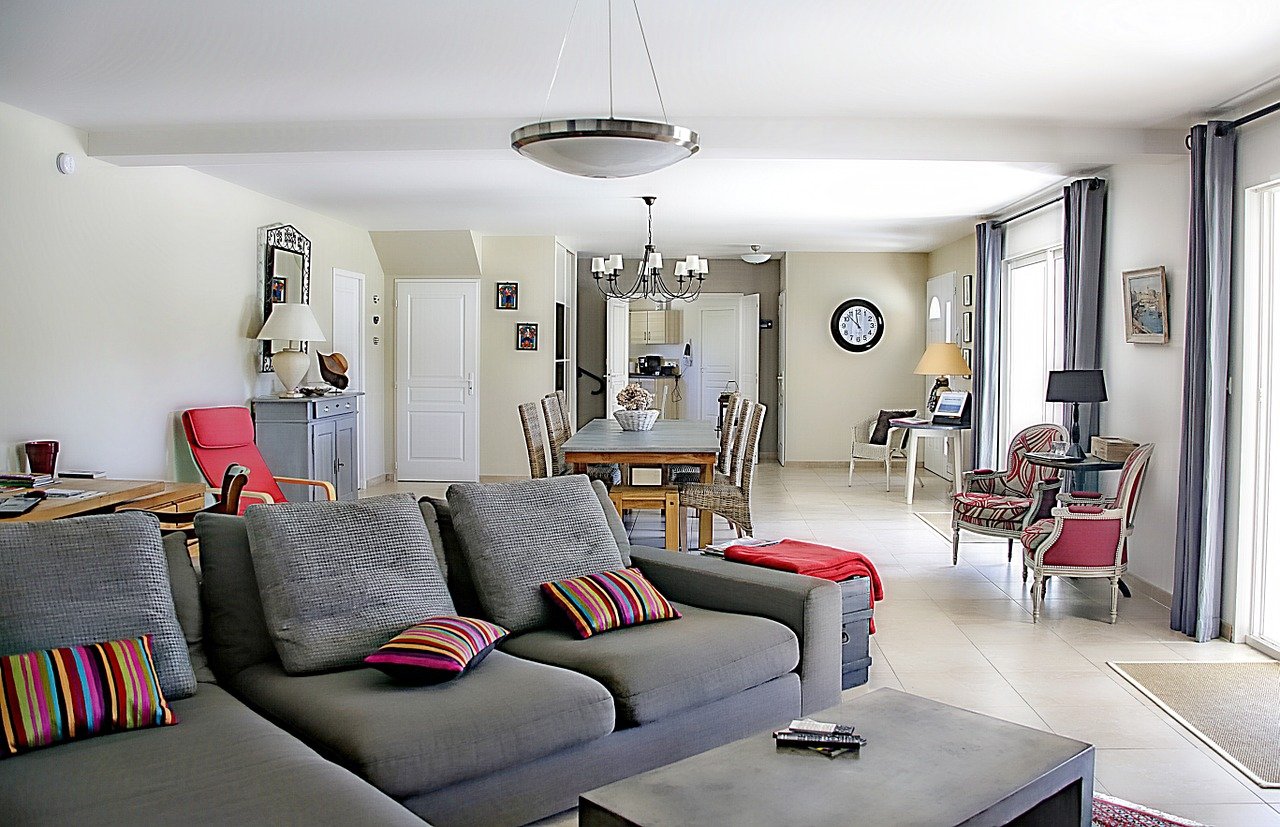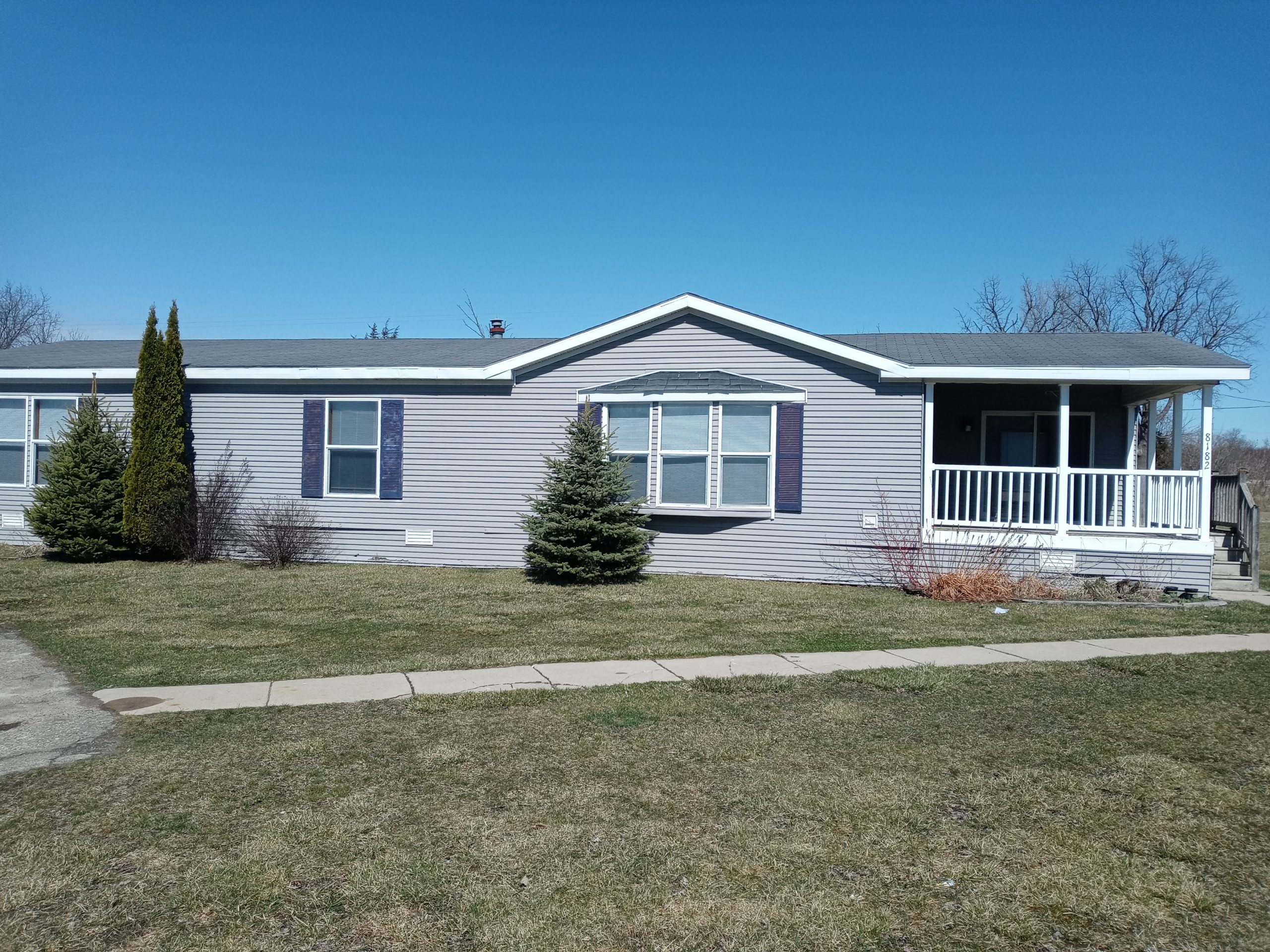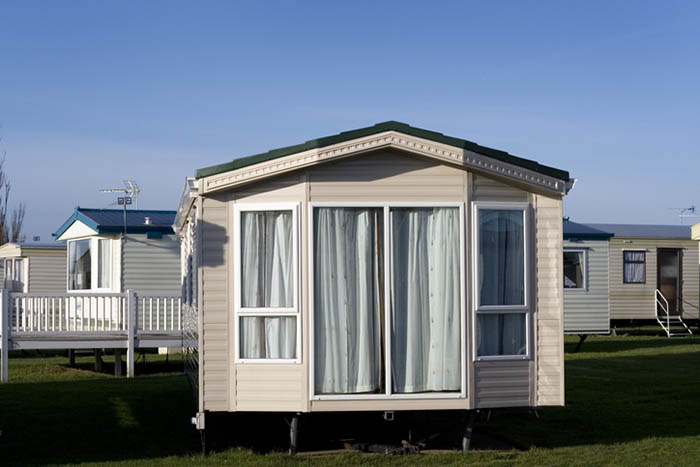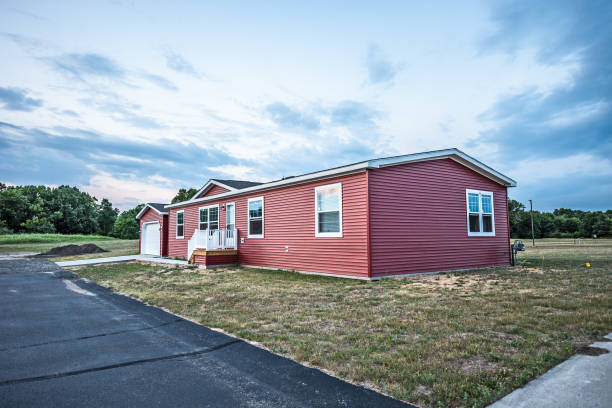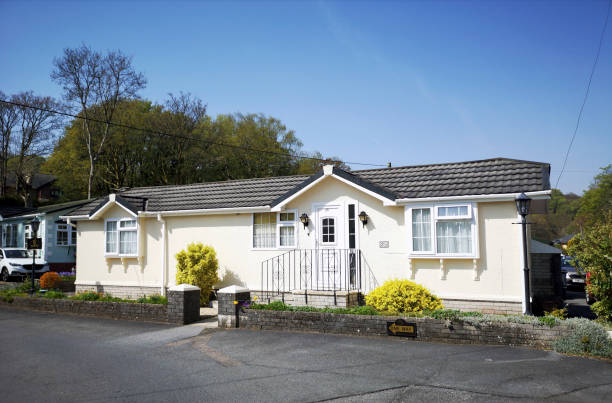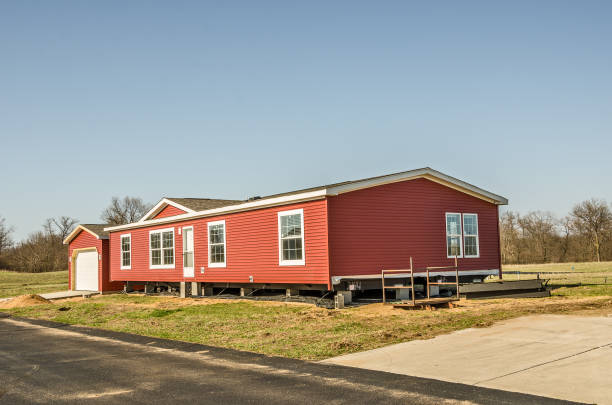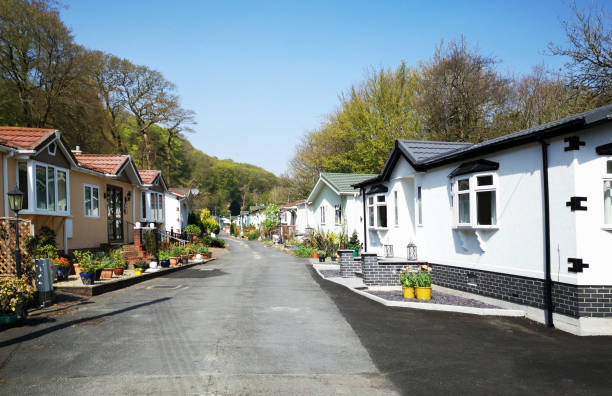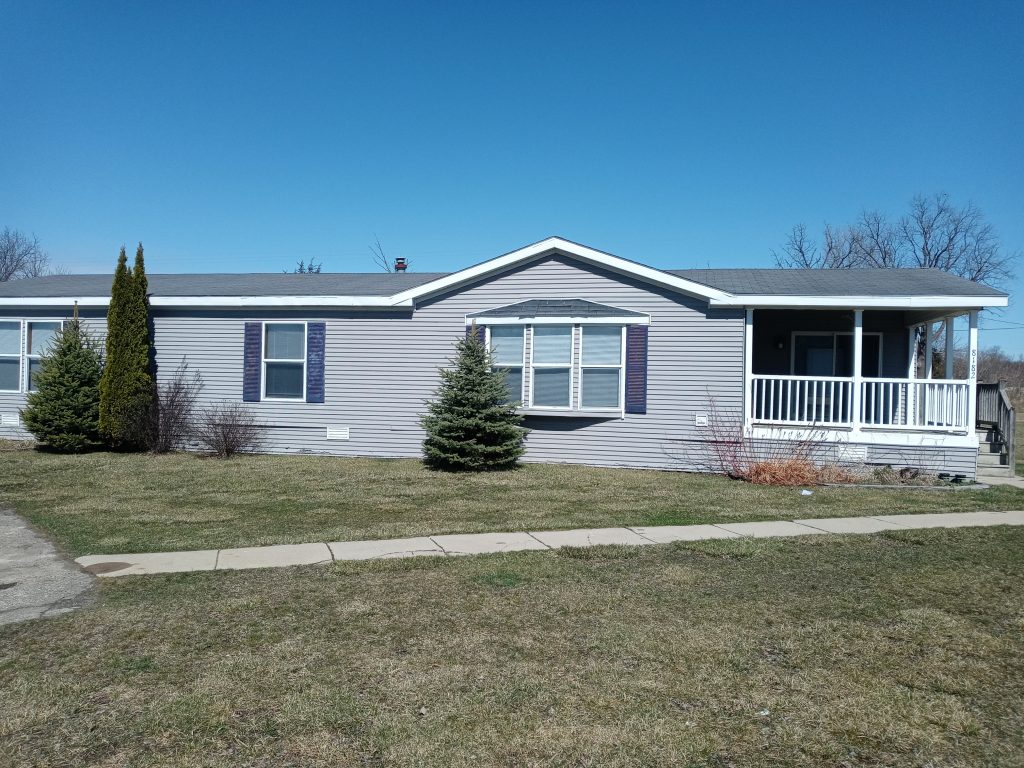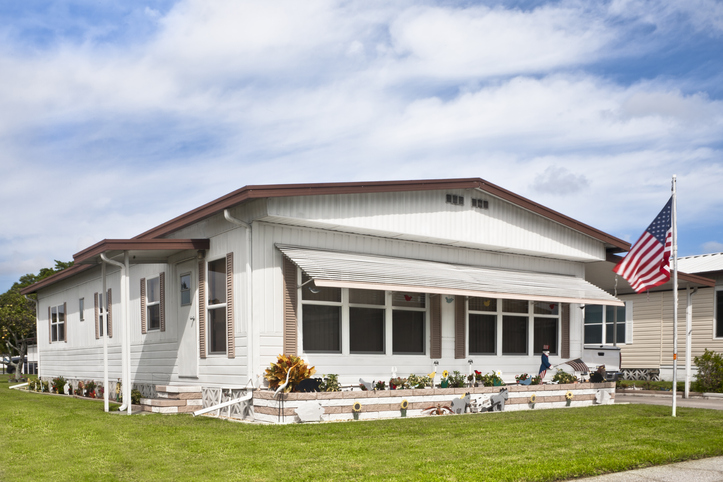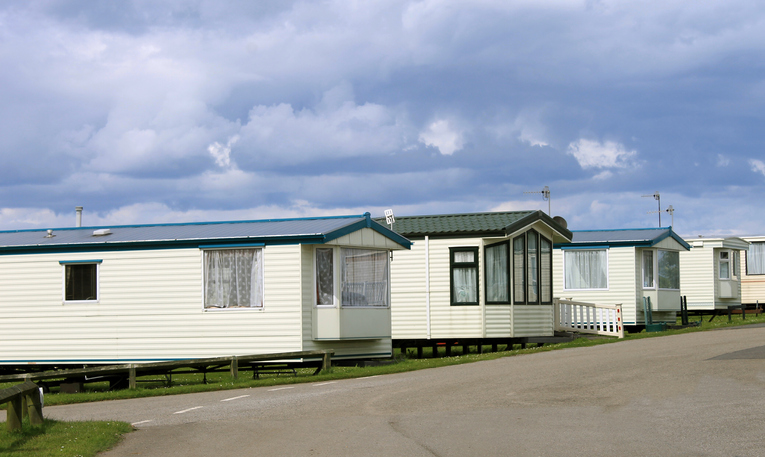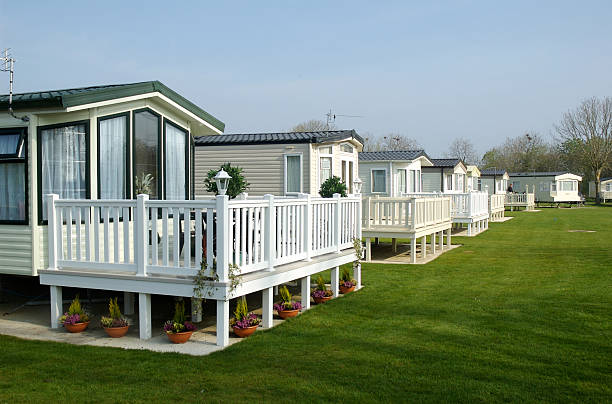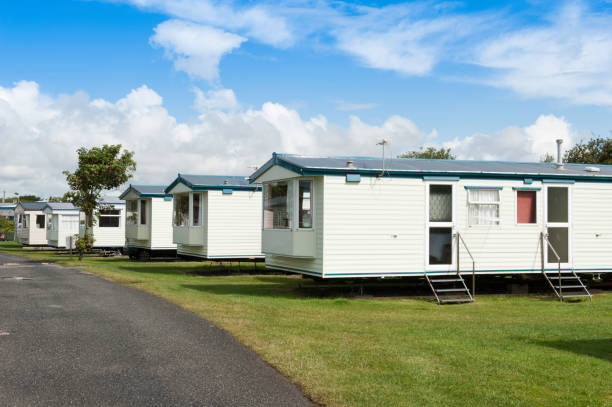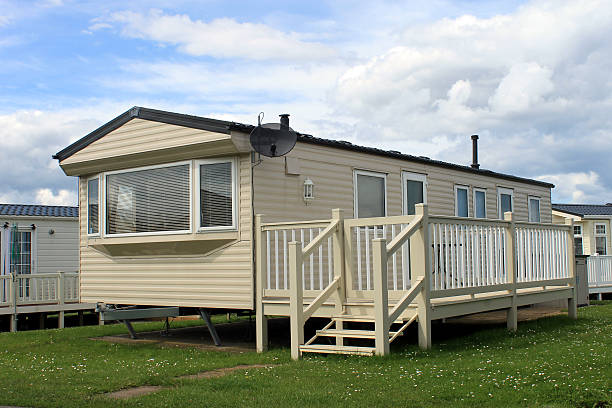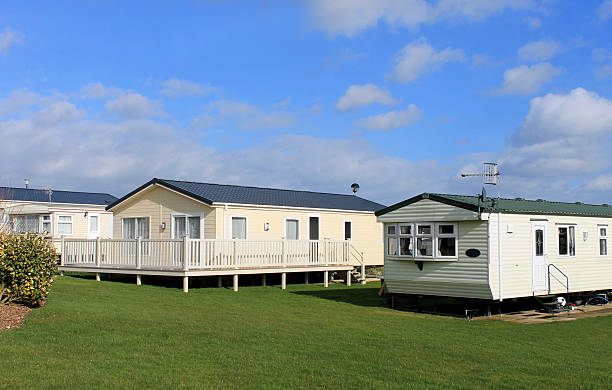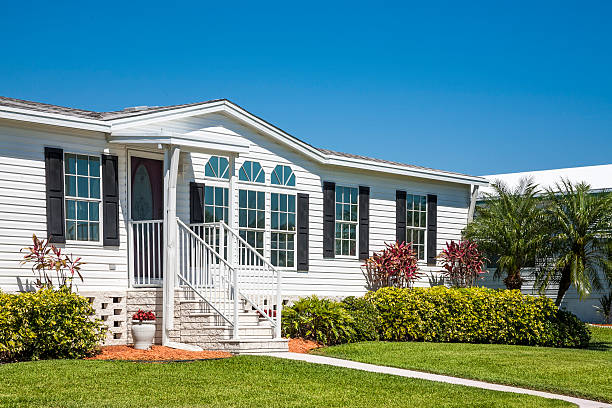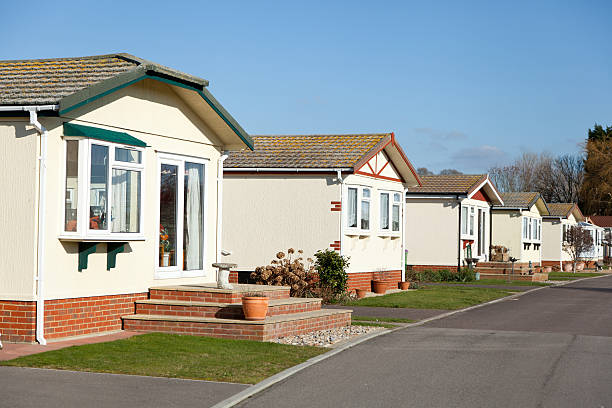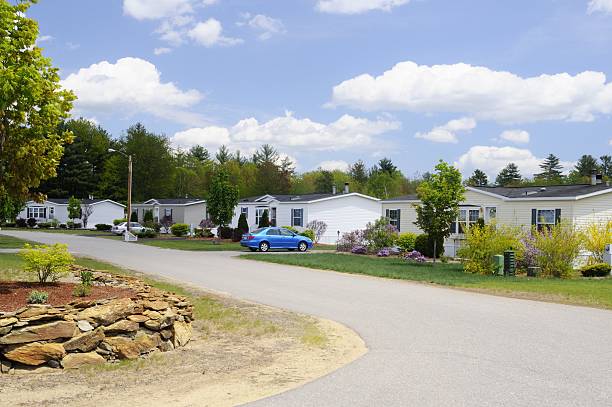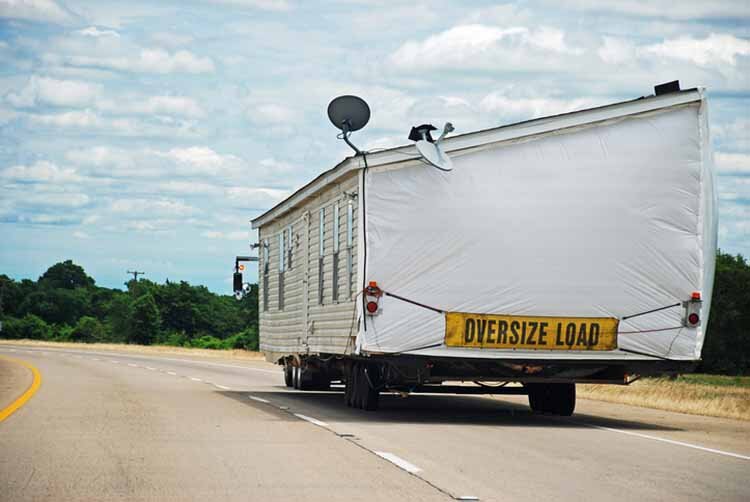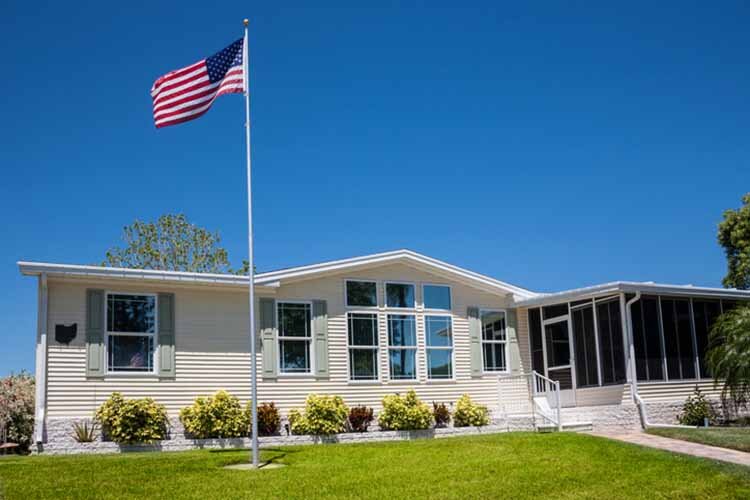4 years ago
·
Justin Becker ·
Comments Off on What it’s Like Living in a Manufactured Home Community
Are you looking for the best place to live with the most affordable housing units on the real estate market? If you’re looking for a house for rent/sale, you might become frustrated due to the lack of options available within your budget.
If this feels like a familiar situation you have ever experienced, locating the best manufactured home community can be a good relief. How about a spacious house for your family, at an amazing price, and in a great location? Sounds good, right?
One of the main benefits of living in a manufactured home community is that the houses are very affordable. Manufactured homes have proven, over time, to cost less compared to other home options, such as site-built homes and modular homes.
This applies to both buying and renting. If you’ve ever dreamed of owning a home property, manufactured homes could bring your dream to a reality.
However, apart from affordability, there are other reasons why you should find a manufactured home community to live in.
In this article, we’ll explore some of the reasons why settling in manufactured home communities is one the best decisions you can ever make.
Living in a Manufactured Home Community
Living in manufactured home communities comes with several benefits, including, but not limited to, affordability, a sense of community, and great features. Let’s look at some of the reasons why you should choose a mobile home:
Homes are Very Affordable
Manufactured homes offer the largest pool of unsubsidized housing units in the United States. Manufactured homes, unlike site-built homes, are first built in factories and then transported to the home community or park, where they are placed for occupation.
The homes are developed with the same materials that are used to develop other home types.
The manufacturing process in factories is more efficient than traditional on-site building options, thus making manufactured housing cost less. Therefore, this presents many residents with an opportunity to own a home property, even if they never dreamed of it.
When most people fail to afford buying a home, they think that renting an apartment is a cheaper solution. However, this is never the case.
The most appropriate decision would be to rent or buy a mobile home rather than focusing on an apartment.
If you decide to go for a mobile home, you stand a chance of getting more home living space at an affordable rate. You are also not restricted to following the landlord’s rules.
The lot rent in most manufactured home communities could go as low as $400 per month. Most parks and manufactured communities across the country are, therefore, cheap, making it easier for a family to own a property.
Enjoy Great Features
Though people may think that manufactured home communities and parks have so little to offer residents, this is simply not true.
The truth is that these home communities have nice and maintained resort-like amenities for residents, including:
● Playgrounds
● Swimming Pools
● Walking Trails
● Athletic Courts
● Picnic Areas
Like we have seen above, manufactured homes are also very spacious, with most offering various desirable features such as:
● Large Bathtubs
● Fireplaces
● Decks
● Walk-In Closets
● Separate Laundry Rooms
● Vaulted Ceilings
● Garages
A home community or park can also provide additional features, on top of the ones we’ve highlighted above.
Manufactured Home Communities Promote a Sense of Community
If you decide to settle in a manufactured home community, you’ll enjoy more than just affordable home units.
When most people think about what makes a home the best, they’ll focus on the structure and their family’s happiness, along with the people who live within the mobile home park. They prefer living in a neighborhood where they will fit in and feel at home. This is exactly what mobile home communities offer.
Landlords always strive to develop land-lease communities to feel like the ideal places where residents belong. This is why almost every community has a comfortable and stylish clubhouse.
These clubhouses offer an ideal environment for community events, thus presenting a great avenue to interact with your neighbors and have fun.
More Privacy
If you can’t rent or own a site-built home, you might be tempted to think that buying or renting an apartment duplex or condo would present a more affordable option. However, you’ll have to sacrifice privacy when you shift to these options.
Living in a duplex, condo or apartment means being forced to share at least a wall with a neighbor. In cases where the wall is very thin, you might feel as if you’re practically roommates with your neighbor.
However, if you were to buy a manufactured home in any home community, you’ll get maximum privacy at a very affordable rate.
Most manufactured homes aren’t placed wall-to-wall, meaning that you’ll enjoy a long distance between you and your neighbors in the community or park.
You won’t have to worry about the loud music coming from any of your neighbors. There is also no worry of your neighbors overhearing anything you talk about with your family, friend or partner.
Pay Lower Taxes
Settling in a manufactured home community or park affords you a unique opportunity to own a home property, but not the land in a mobile home park. The best thing about such an arrangement is that you aren’t entitled to tax payments.
In most cases, tax is one of the highest expenses that owners of homes incur. Take away this expense, and you’ll end up leading a more comfortable and affordable lifestyle.
Fast Construction Speed
If you require a home quickly, your absolute best option is going for manufactured homes.
If you’ve ever suffered at the hands of slow construction projects or contractors, then you can relate to what we’re talking about.
A slow project is always prone to extra costs and delays.
One exciting thing about manufactured homes in mobile home parks involves the manufacturing processes. The homes are designed and developed in factories using assembly-line techniques.
There are repeatable processes and standard design techniques employed to bring out high-quality manufactured homes within a very short period.
Immediately after you request a mobile home, it will be developed in about one week. The period could be shorter or longer, depending on the extra options and the specific home you choose. Some factories can develop these homes as fast as two days.
For instance, preparing the lot or constructing a foundation for a manufactured home takes only a day or two. Transporting and setting up the home could also take a day.
If you compare this to the almost seven months spent, on average, developing site-built homes, mobile homes blow this out of the water.
Energy-Efficiency and Cutting-Edge Materials
Because of how homes are created in mobile home parks, they’re progressing rapidly and advancing in different aspects, compared to several years ago. One such aspect is energy-efficiency.
Manufacturers of mobile homes take the time to test new techniques and materials to improve the homes regularly.
For instance, in some areas, such as plumbing, a mobile home is ahead of a stick-built home for improved techniques. In manufactured homes, an example of this is that they are developed using the new PEX pipes or plastic pipes.
The pipes are cheaper to fix, last longer, and don’t easily freeze during winter. This is why these pipes are preferred over copper and metal ones, which are typically found in traditional homes.
Mobile home manufacturers also allow you to select energy-efficient add-ons. For instance, you can get a solar panel and additional energy-saving appliances. This is an add-on that wasn’t available about ten years ago.
You’ll also encounter stylish and sleek designs. That is why you’ll hear them being called homes of the future. They are an improvement of mobile homes that were witnessed several years ago.
Once you’ve occupied a mobile home, it becomes easy to improve its energy features. For instance, it’s inexpensive and easy to roof over a manufactured home using materials like a cooling membrane or insulation.
The Final Verdict
As we have seen, manufactured home communities have seen an improvement in features, amenities, and designs than they were a few years ago. The good thing is that the cost of amenities are included in your lot rent. This is what has led them to be the preferred option for those seeking a perfect home to live in.
The bottom line is that these homes are affordable, give you more freedom, are energy-efficient, and you end up paying low taxes. We hope that you get a mobile home that you and your family desire.
Read more
4 years ago
·
Justin Becker ·
Comments Off on How to Price a Manufactured Home
Most owners seeking to sell, or upgrade, their manufactured homes want to know the price, or worth, of their homes. Unfortunately, it isn’t easy to acquire an accurate figure by just doing a quick search on the web.
There are different things that you must take into consideration while estimating the value of your manufactured home. In this article, we will explore the best approach on how to price a manufactured home or, otherwise called, mobile home.
How to Price a Manufactured Home
Several factors determine how to price your mobile home. Let’s look at some of these factors.
Age
The age of your mobile home is a factor to consider when pricing it. However, the question here is whether the manufactured home was built after or before June 15, 1976. This is the age when manufactured homes were clearly defined.
Manufactured homes involve prefabricated structures developed in industries after 1976. The homes are then moved to their respective site for installation.
You might be asking, why would 1976 matter?
This is when the U.S. Department of Housing and Urban Development (HUD) code was taken into effect. The code is responsible for improved and upgraded practices that ensure the value, long life, and quality of mobile homes.
Size
What is the size of your home? Generally, if your house has more space, it’s going to fetch a higher price. This means that it has more living space and more materials were used in its development.
Most homebuyers prefer houses that are open, with more square footage. It doesn’t matter whether the additional space is used for a large kitchen, extra storage, or another bedroom. If you want to learn more about different home sizes and how they affect price, check out here.
Materials
There is no argument that the better the material used to develop mobile homes, the better the quality and the higher the home’s value will be.
A new manufactured home will cost about $74,000, on average. Some materials can make a mobile home more valuable and of higher quality than the average site-built home, including finished drywall versus wallboard, six-panel doors, hardwood cabinetry, energy-efficient windows, and upgraded lighting.
Appliances
Most modern manufactured homes are developed with energy-saving appliances and improved technology. It’s common for homes with energy star ratings to have a higher value than those that don’t.
Buyers are also willing to spend more money in cases where there are stainless steel appliances.
Another highly rated feature in manufactured homes is the smart thermostat. If you’re seeking to save more cash on your monthly bills, then you should go for the energy-efficiency approach.
Additions
There are several additions that you can include in your home to improve its value. For instance, the value will automatically improve if you had a garage or porch incorporated into your mobile home. The same will apply to when you have a dormer, or wrap-around deck, on your home. Generally, any post-factory addition will increase the home’s value.
Location
Location is one of the most critical factors in determining the price of a manufactured home. However, in most cases the homes are placed in a mobile home park.
There is no hiding the fact that homes are more expensive in some environments than others. When pricing mobile homes, a lot depends on whether you own the land to the home site or not.
If you own the land, or site, selling a manufactured home or mobile home is almost similar to selling site-built homes. This means, just like with site-built homes, you can sell your home together with the land, if you want. However, there are major differences between a mobile home and a site-built home.
For instance, If you own a piece of land with a mobile home in San Francisco, you should expect it to fetch a high price. The same mobile home in a less desirable location will fetch a lower price.
With that said, when you don’t own the land to your home site, it becomes tricky since the home is no longer classified as real estate property. If a buyer wants to purchase just the home, financing it is similar to purchasing an automobile.
It becomes desirable to buyers if you own a mobile home closer to a golf course or beach. This means that you may end up selling it for more money. A home located on a quiet lot may also fetch a higher price compared to mobile homes located closer to a busy entrance. The best site to have your home on, however, is the one closer to basic social amenities and services.
Condition
Regardless of the features and location of your home, its overall condition is of utmost importance. Even though the primary systems, such as HVAC, electrical, roof, windows, and plumbing, are essential concerns, most buyers want to see the home maintained from top to bottom.
Type
The type of home in question plays a significant role in pricing. There are at least three types of mobile homes on the real estate market: single-wide, double-wide, and triple-wide homes, which are also known as multi-wide homes.
Single-wide homes typically have one-two bedrooms, one-two bathrooms, an eat-in kitchen, and a living room. The size of these homes ranges between 750 square foot to 1,050 square foot.
As per U.S. Mobile Home Pros, a new single-wide home will cost $40,000 on average. A used home may range between $10,000 to $25,000.
A double-wide home typically has a living room, dining room, three to four bedrooms, two to three bathrooms, and a kitchen. A new double-wide unit will cost $75,000, on average, and a used unit will cost $20,000 to $50,000, on average.
Although the triple-wide units aren’t as popular as the other two, they’re also gaining popularity on the real estate market. These homes typically come with four bathrooms and at least five bedrooms. New triple-wide homes cost $100,000 to $250,000, on average, while used units cost about $50,000.
So What Is My Home Worth?
By now, you have a clear understanding of the factors you should consider while determining the value of your home. With that said, we have not answered the exact worth of your home.
Since every mobile home is unique, you can only arrive at the value and worth of your home after doing a thorough assessment. We have assembled actionable solutions below:
Ways to Determine the Value of Your Mobile Home
There are at least three ways that you can employ to assess the worth of your mobile home. Let’s look at each of them below:
Acquire a Free Book Value
If you’re seeking to sell your mobile home, then acquiring a free home value report is an important step in understanding the pricing of your home. The book value normally involves the model, year, and make of the mobile home. In it, you can get the average value of the house, based on the above information.
The book value works well if your home is average, or situated in an average market. However, at least half of the mobile homes will be worth more than the average amount you get from the information. What you’re purchasing with this is the “average value” of the make and model of the home.
In one way or another, either your market, home, or community is likely to be unique. This means that the book value might fail to offer you the exactly right pricing information.
Search MHVillage
MHVillage has at least 32,000 manufactured homes listed for sale throughout the United States. It would help if you, therefore, did some research by employing the MHVillage search feature. Here, you can use every possible criterion, including floor plan and geography, or site location, to identify a home that’s similar to yours.
For instance, if your home is a 40’x48′ Palm Harbor mobile home, located in the Orlando community, you can easily find similar homes using the MHVillage listings. You’ll notice that homes fitting this category goes for about $130,000.
Datacomp Appraisal
When it comes to mobile home appraisals, Datacomp comes on top. The company has over 550 inspectors in the United States who can comfortably provide you with written appraisal reports within, at least, six days.
Datacomp will first designate a local inspector to come to your home and gather the relevant information. This information will then be presented to a staff appraiser, who would determine the market value of your mobile home. The Datacomp staff appraiser achieves this by comparing the mobile home to other appraisals that the company has managed to obtain over their 30 years of business operation.
There is specific information that Datacomp considers when determining the value of your home, which include:
● The size and age of your home
● The appliances in the house
● The quality of construction involved
● Additionals that add value to the house, such as porch and garage
● Site location of the home
● Remodeling and interior upgrades
● The value of similar manufactured homes in the real estate market or community
Conclusion
As we have seen, pricing your home, whether a site-built, manufactured, or mobile home, isn’t a simple task. However, everything becomes easier if you follow our guide above.
You must consider certain factors while pricing your home, including your home’s location, size, and age.
As we’ve illustrated, there are ways of getting the value of your manufactured housing unit. Always consider buying a highly priced mobile home. We hope you achieve what you’re looking for.
Read more
4 years ago
·
Justin Becker ·
Comments Off on What is a Manufactured Home?
Modern manufactured homes are factory built,according to the U.S. Department of Housing and Urban Development (HUD) building standards, and are then transported onto a vehicle and sent to a site, where the home is assembled.
Manufactured housing has grown in popularity over the years in the USA, and today around 20 million Americans live in mobile homes. Living in a manufactured home is a flexible lifestyle choice that allows you to move the home and your location more freely.
We have carried out research to find out what a manufactured home exactly is:
What is a Manufactured Home?
Manufactured homes are placed on permanent steel chassis. Concrete foundations can sometimes be added to ensure their structure remains secure and stable. During their transportation, manufactured homes come with wheels attached to the bottom, which are then subsequently removed as soon as the home is assembled on-site. Despite being transportable, people often choose to keep their manufactured homes in one place and reside on the same site and in the same location.
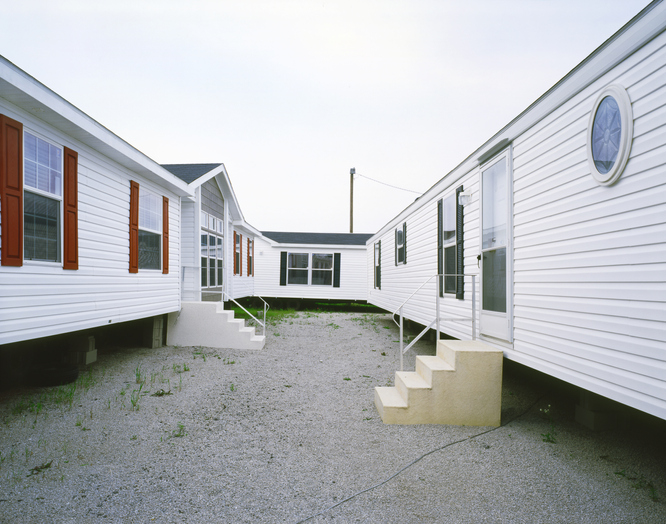
In What Ways Do Manufactured Homes Differ from Modular and Mobile Homes?
There is often a great deal of confusion between manufactured, modular and mobile homes, and the differences between them. Here we clear up what distinguishes manufactured homes.
Modular homes are also homes manufactured in a factory. However, modular homes ARE NOT required to meet the HUD building standards. Yet they still have to comply with the same local, state and federal building codes, just as traditional site built homes do.
Modular homes are also transported to the site, where they are then assembled. Modular homes are set on a permanent foundation, therefore they do not tend to be moved repeatedly onto other sites, like manufactured homes do.
Mobile homes are also factory built and best suited for families and individuals who wish to move their home frequently to different sites, as they are easy to transport and can be towed on roads. Mobile homes are usually not built with an affixed foundation, and they are not required to meet the HUD Code.
The History of Mobile Home Communities in the USA
Mobile home community living, as a property and lifestyle choice, can be traced back to the popular trailers that began to appear across the USA back in the 1950s. These trailers were single sections and could be towed by vehicles on roads. They were not as big as the manufactured homes on the market today.
In the 1960 and 70s, Americans began to desire wider, larger mobile homes with permanent structures. Therefore manufactured and modular homes started to become more and more in demand.
Mobile homes have always been popular with individuals who work in remote rural areas. The moveability aspect of living in a mobile home is beneficial and useful for workers who have to move sites often for their job. They also offer an alternative to urban city housing.
Some people prefer the quieter country way of life compared to the relentless hustle and bustle of the big American industrial cities. For example, there are many manufactured home communities, throughout the state of Michigan, where people choose mobile home living in smaller rural towns over living in sprawling cities, such as Detroit.
The factory built mobile homes today can be very large, with homes spanning up to 4,000 square feet in size. Today they are also built sophisticatedly with modern day appliances, air conditioning, en suite master bedrooms, top-quality fitted floors and furniture, and so on!
Large modern manufactured homes can sometimes take quite a long time to make in the factory, especially if a lot of material is required and if they have been built in multiple sections. Today, a brand-new top-of-the-line large sized per square foot modular home or manufactured home can cost anywhere from $130,000 – $200,000.
So How Are Manufactured Homes Different from Traditional Homes?
Traditional stick built homes are constructed on-site, unlike manufactured homes that are prefabricated and built in a factory before being transported in sections to their permanent location. Stick built homes are made piece by piece and rest upon wooden frame structures.
How are Manufactured Homes Safely Transported to a Site?
Manufactured homes are transported using specialist removal vehicles capable of safely carrying and transporting heavy sections of manufactured homes to the desired site. Drivers should carry out checks to ensure the sections are belted in safely and that no damage will occur to the home during transit. Some smaller mobile homes are single section, so they can be transported in one trip.
Make sure you pick a reliable removal driver with a good reputation. You may want to look through customer reviews and find a reliable removal company to minimize the chance of any damage occurring to your beloved manufactured home!
Can You Move Your Manufactured Home to Another Location at Any Point?
One beauty of owning a manufactured home is that you can move to a new site, in a different location, whenever you feel like it. Firstly, you must contact the site-owner to lease or buy the land you want to put your manufactured home on.
Do you or one of your family members need to move around the country regularly to different locations for work and are looking for an affordable housing option? Look no further than investing in a manufactured home as soon as possible!
What is the HUD CODE for Building Manufactured Housing?
The U.S. Department of Housing and Urban Development first introduced the Manufactured Home Construction and Safety Standards on June 15, 1976. Manufactured homes built prior to June 15, 1976, do not comply with the HUD Code and are at risk of encountering major electrical problems, which can result in dangerous household fires.
The HUD Code requires manufactured homes to be built on permanent chassis. If your manufactured home is damaged during transportation or installation, you must contact the contractor who transported or installed your home and not the HUD.
Important aspects that the government’s Department of Housing and Urban Development take into consideration when assessing how to regulate the building of manufactured housing include:
- Design and construction specifications
- Fire safety
- Energy efficiency
- Transportability
- Heating, ventilation and air conditioning standards
- Electrical safety
- Meeting local building codes
Data Plates
A data plate is a detailed paper certificate that contains a mobile home’s full manufacturing information. A data plate is a confirmation that a manufactured home has been built according to HUD standards.
All manufactured homes built after 1976 are required to have a data plate. If you lose the data plate for your manufactured home, contact the Institute of Building Technology and Safety to order a replacement. Manufactured homes come with a red HUD label on the outside as further verification that the home has been built according to HUD standards.
Are Manufactured Homes Affordably Priced?
Fortunately, today’s manufactured homes are far cheaper compared to the traditional houses in the USA built on-site. Renting or buying manufactured homes is by far a more affordable housing option than traditional site built homes.
The average cost of a traditional home in the USA in 2020 was $389,400, whereas the average cost of a standard single-wide manufactured home in the same year was $57,200. A new double wide manufactured home cost on average $109,300. So, save yourself a large chunk of money and invest in a manufactured home!
What are the Main Benefits of Choosing to Live in a Manufactured Home?
There are various benefits in opting for manufactured home living over traditional homes built on-site. The main benefits are:
They are made to impressively high building standards! –The homes are inspected and regulated during the building process in the factory. The workmen carry out checks to ensure all sections of the home are safe, secure, and manage to meet the HUD Code building code.
Household amenities and luxury features – Many homes come with top-quality interior household features such as custom flooring, cabinetry, walk-in closets, modern kitchen appliances, and much more luxury home features, such as private balconies and patios!
Energy-efficiency – The homes come with reliable ventilation and heating, and are generally far more energy-efficient compared to traditional site built homes. So, your energy bills should go down by a great amount when living in a manufactured home!
Conclusion
The main difference between manufactured homes and traditional homes is that manufactured homes are built off-site in a factory, as opposed to on-site and on top of a permanent wooden frame foundation. Manufactured homes are also transportable, meaning homeowners have the opportunity to move locations more easily, while also being able to keep the same home they are accustomed to living in.
A lot of today’s manufactured homes are similar, or better, in quality than traditional homes, and they come well-equipped with luxury features and top-quality household fittings. They can be up to 30% cheaper to buy than traditional homes too!
Read more
4 years ago
·
Justin Becker ·
Comments Off on The Cost Difference Between Modular and Manufactured Homes
For many people, investing in a good home remains a significant life and financial milestone. Many people ask themselves whether it is a good idea to invest in a mobile, manufactured or modular house. There is a high chance that you’ll come across terms such as site-built, manufactured, and modular while looking for the perfect home.
A clear understanding of these terms, especially as far as manufactured homes and modular homes are concerned, is very important. This helps you make a very informed decision on which house to buy. In this article, we are going to explore the differences between manufactured and modular homes.
Cost Difference Between Modular and Manufactured Homes
Even before we explore the cost difference between modular and manufactured homes, we must look at the main differences between manufactured houses and modular homes.
The Basics: Manufactured Homes vs. Modular Homes vs. Site-Built Homes
What is the difference between modular and manufactured homes or stick-built houses? Site-built homes are homes that are completely developed in place. They are developed, as per the specifications, on their final site. Everything is assembled at the site.
On the other hand, mobile homes and modular homes are built in factories. Modular homes are then assembled in sections before being transported to their final site. They are moved to the site using a flatbed truck, where they are then assembled, as per the predetermined plan. Since modular homes are created in sections, it’s easier to customize them. For instance, you can come up with a home of any size.
Manufactured houses are built in factories too. However, they are constructed completely before being transported ,on their frame or chassis, to their home site.
The good thing is that both mobile homes and modular homes can be low-cost options, compared to site-built homes. With that said, before you choose which to buy, there are several differences that you must explore.
Modular Homes
Modular homes are generally treated like site-built homes. Even though these homes are assembled from pre-developed sections, they are normally set on a traditional foundation. They are also structurally inspected by the relevant professionals to ensure that they adhere to the building codes. And to make sure that the homes are well-built, developers always use high-quality materials supplied by known brands or company. Like for example, when it comes to stainless steel materials, the trusted ones are those provided by Sun Steel.
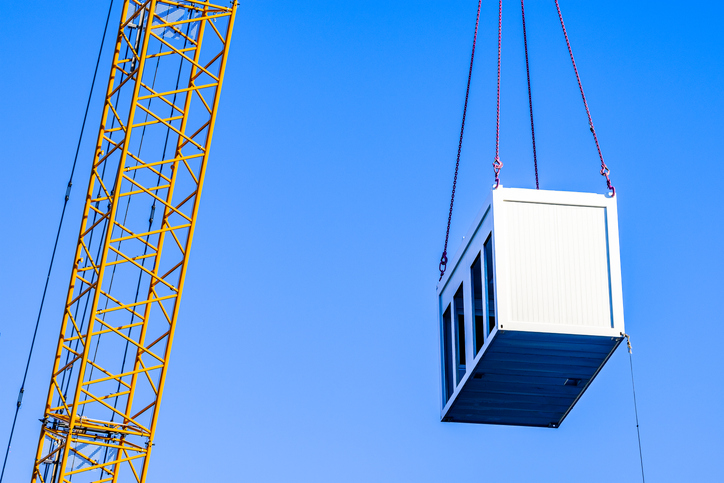
With a modular, customization is possible, although the degree isn’t as much as what is achieved in a site-built home.
Several manufacturers provide modular homes, and you should look at the available options, including layout, construction timing, and size.
Modular homes take less time to construct, compared to site-built homes. Since they are also considered as ‘real estate’ properties, just like site-built homes, you’ll have the same legal rights, tax treatment, protections, and financing options, if you buy a modular home. You can explore the best modular houses in Michigan here.
Pros
● A modular home is cheaper compared to a site-built home
● It’s sturdy and holds up well to weather
● Financed under a similar category like a site-built home
● Constructed faster than site-built homes
Cons
● More expensive compared to mobile houses
● Less customization ability
● Has to meet building regulations as a site-built home
Manufactured Homes
Manufactured houses are fully built in a factory and then transferred to their property site on its wheels using a steel chassis. Even though the wheels are removed after it gets to the site, the chassis is left untouched. Manufactured houses have, in the past, been referred to as mobile homes. Homes manufactured this way can be moved from one place to another.
The good thing about homes built in this manner is that you can have them placed on the land you rent or the land you own. With that said, it would help if you understood the ordinances related to the land you choose. It’s also important that you choose the best city to settle in.
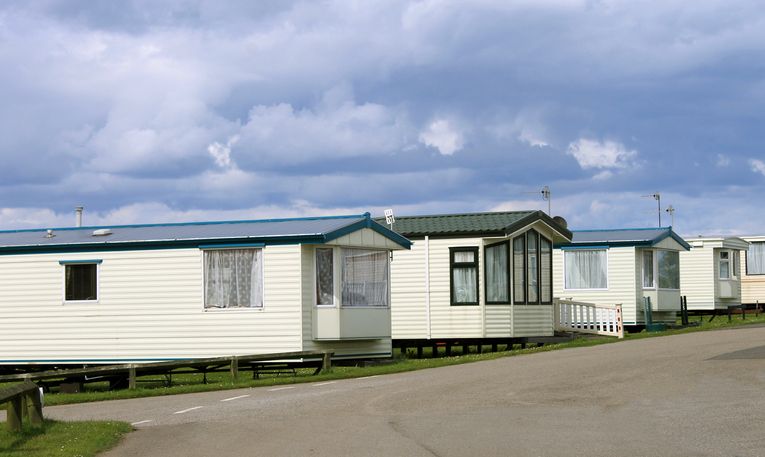
You can have your mobile home moved to a trailer park. In such a case, the mobile home is yours, but the land is leased, and you pay for it. Before you buy or rent a mobile home, ensure that you understand the restrictions, land ownership details, and agreements.
You need to understand that many lenders treat manufactured houses as personal property, which is different from modular homes or site-built homes. They are considered just like a car or TV, rather than real properties, like apartments or houses. This, therefore, has a stronger implication on taxation, consumer rights, and protections.
Manufactured houses don’t have to comply with local building regulations, however, they need to be developed according to the ‘Department of Housing and Urban Development‘ (HUD) requirements. These houses don’t have structural inspection requirements, but there are several things that you should consider before buying manufactured homes.
Pros
● Requires less effort and time to set up
● Fewer expenses than site-built homes and modular homes
● Can be delivered within days to your home
● Can be moved to a different home site
Cons
● Restrictive covenants can limit you from having the home where you wish it to be
● No inspection to ensure homes are structurally sound
● Can lose value
● Different and tough financing terms
Differences Between Manufactured and Modular Homes
There are differences between a manufactured and modular home. Let’s look at these differences:
Placement
As far as building codes and zoning is concerned, there is no difference between a site-built and a modular home. If you have a lot that allows new constructions, you can develop a modular home on it. For manufactured houses, you must check your local zoning codes before buying one. Note that not all municipalities will allow you to set up manufactured houses. If you would like to live wherever you like, you should go for a modular home.
Styles
A modular home offers you more design options compared to a manufactured one. In most cases, a mobile home will either come as a single, double, or triple-wide with rectangular shapes. Just like site-built homes, modular homes also come with similar styles. You’ll also have more options when it comes to interior finishing.
Construction
Although the two are developed using the same materials, they are exposed to different building codes. A mobile home is developed as per the codes that have been established by the ‘US Department of Housing and Urban Development.’ They set how the home’s system and structure should perform. A modular home is built as per the building codes, which also have a similar effect on quality.
Safety
Under extreme environmental circumstances, including tornadoes, it has been noted that manufactured houses tend to endure damage as a result of the failure of fasteners. There is also a lack of enough anchoring. A modular is better off, especially if you live in an area prone to serious environmental catastrophes.
Similarities Between Manufactured and Modular Homes
Although there are several differences that these two style homes have, there are also similarities that are shared. First, they are developed with precision in climate-controlled facilities. They are also transferred to a work site on a frame, in pieces, and assembled on the spot.
Just like with site-built homes, a modular and manufactured house is also developed with the same quality materials. They are also able to affix your home to land using a permanent foundation, if so desired.
Cost Differences
When it comes to buying a home, manufactured houses are more affordable compared to modular ones. This can be attributed to the fact that manufactured houses have simpler designs. With that said, the prices that a seller quotes for these homes are base prices, and not list prices. Base prices will include the cost of setup and delivery, and sometimes basic site preparations.
Base prices don’t involve the cost of lot clearing, running utilities, or the cost of a foundation. To know the exact charges of these homes, you should contact the manufacturer.
Financing mobile homes are very difficult, compared to modular ones, unless you own your land and place the home on a permanent foundation. In such a case, you can take a mortgage loan. If you place a manufactured home on leased land, you might be given a loan, but at a very high-interest rate.
Just like financing site-built homes, modular homes can also be developed with a loan. You can start with a construction loan that may turn into a mortgage loan after the house is complete.
Unlike a modular home, that increases in value over time, a manufactured one decreases in value, thus making difficult financing terms. It can therefore be not easy to improve, expand or maintain a manufactured home.
Conclusion
As we have outlined here, there are many differences, and a few similarities, between modular and manufactured houses. However, the type of home you choose to buy will depend on your preferences and personal needs.
Modular homes are sturdier and follow the same market trends as site-built homes. However, they might cost just the same as other homes, and have to meet local building codes.
Manufactured homes are much more affordable compared to other types of homes. However, their foundation is not permanent and might not be as sturdy as a modular or site-built home. They also lose value quickly and might be hard to refinance in the future.
It’s therefore important that you weigh the pros and cons between the two homes as you choose the best option that works best for your needs and situation. We hope that you find the best home for your family.
Read more
5 years ago
·
Justin Becker ·
Comments Off on Things to Consider when Buying a Mobile Home
Mobile homes are the new trend in the world today. People are now looking for quality, yet affordable housing options.
There are at least two types of factory built homes that you should select from, manufactured homes and modular housing units. The difference between the two homes, primarily, is their foundation.
In most cases, when people have the thought to buy a mobile home, they are not sure whether it is a good idea or not.
The truth is that buying a mobile home is an excellent idea. With that said, there are things that you should consider when purchasing your mobile home.
In this article, we will focus on what you need to consider while purchasing a mobile home.
Things to Consider when Buying a Mobile Home
Before we focus on what to consider while buying a mobile home, let’s look at what manufactured and modular homes involve.
What is a Modular Home?
Modular homes are manufactured in a factory and then installed on permanent foundations. A home manufactured this way is sometimes known as a lit housing unit.
The factory environment abolishes potential challenges related to climatic conditions at the home construction sites, including snow, wind, rain, and mildew.
If you seek to buy a modular home, you should first have a contractor develop a foundation. You can then fix the house permanently on that foundation.
What is a Mobile or Manufactured Home?
So, what is a manufactured home? A manufactured home is developed entirely in a factory and then transported to the site where they are fixed.
These factory built units are designed to make relocation feasible. Instead of having manufactured homes on permanent foundations, they are anchored to the ground after installation.
Even though these homes are not designed to be put on permanent foundations, it is still possible to do so.
You can choose a permanent foundation for the reasons below:
● If you own the land where you want to put the house and see it being a permanent structure, just like a site-built home
● If you want a basement to offer storm shelter
● If you are afraid of strong wind and feel that your house is safe on permanent foundations
● If you want to set the manufactured home in a flood-prone location, a foundation will help elevate it
Building and Quality Standards
The Department of Housing and Urban Development introduced the HUD Code for mobile homes to guide the development of manufactured homes.
The HUD Code addresses the following issues:
● Transportability
● Fire resistance
● Construction standards
● Quality of building materials
● Durability and strength
● Design, such as relocation accommodations
● Electrical, plumbing, and electrical codes
● Energy–efficiency
Manufactured homes are built and assembled in environmentally controlled factories by professional workers.
It is because of this that the modern manufactured homes, therefore, beat site-built homes both in durability and quality.
Defining Your Mobile Home
The best starting point to begin buying a manufactured home is to ask: “How will the home be used?”
● Who will stay in the house?
● How many bedrooms will you need?
● Will you need special accommodations?
● How many bathrooms will you require?
● Will you need a room either as a nursery or office?
● Will any room have a minimum size requirement?
If you would like to live in a mobile home for the long term, then you should define the manufactured housing unit from that perspective.
It would be better if your home meets your lifestyle and needs not only today, but into the future.
The good thing is that most manufacturers have several mobile home options that you can buy from.
If you are a patient buyer, you can participate in designing your house, including exterior and interior finishes and room dimensions.
Size
Mobile homes are smaller in size compared to stick-built homes.
Therefore, while thinking about the size of your house, it would be better to focus on the number of rooms, rather than the size of the room.
However, manufacturers offer generous floor plans, especially for triple-wide, double-wide, and single-wide mobile homes.
For instance, a double-wide manufactured home can have a size of over 2,000 square feet.
Rooms
You might need a storage room, self-storage facilities, or office space. This could be just a bedroom that is dedicated for a special purpose.
The size of your rooms should depend on the profile of your family. For instance, if you have a family of four people, it can function well with a single living room.
It would help if you also considered your kitchen. If you like cooking, you should have a spacious and well-equipped kitchen.
You can also implement an open floor plan, where your kitchen flows continuously into your living room.
Flooring
You will have several flooring options to select from, including tile, laminate, linoleum, and carpet.
There is even the possibility of designing unique floor coverings in every room.
Interior Options
You can improve the interior of your mobile home by including amenities like a fireplace. This will be very helpful, especially during winter.
Exterior Options
Most manufacturers have several siding options that you can select from.
If you invest in quality siding, you will achieve longer life, durability, and color retention for your mobile home.
There is also a wind zone option, with most homes being constructed in Wind Zone 1. Learn more about wind zone ratings for mobile homes here.
Architectural Options
There are several exterior colors that you can select from.
You can also implement architectural features, like gables.
Location of a Mobile Housing Unit
There are at least 6.8 million mobile homes in the U.S., with about 17 million Americans living in these homes.
Almost half of the mobile homes are found in mobile home communities, where they pay monthly lot rent.
When deciding where you will locate your house, there are two options:
● On someone’s land
● On your land
Each of these options has its pros and cons.
If you own a piece of land, then your own land would be the best option to consider.
You can still consider this option even if you have a mortgage on the land.
In case your land has never hosted a mobile home before, it would be best if you precisely determine where to place it.
The location you select should be flat. If there are stumps or boulders on the land, you will have to remove them and grade the location.
It would also be best if you focused on the orientation of the structure, including the sun’s view and exposure.
You need to keep in mind that the cost of buying land varies throughout the United States.
With that said, if you choose to place your house in a manufactured home community, they will offer you enough space for what you pay for.
The lot rentals vary from one mobile home park to another, and from one real estate market to another.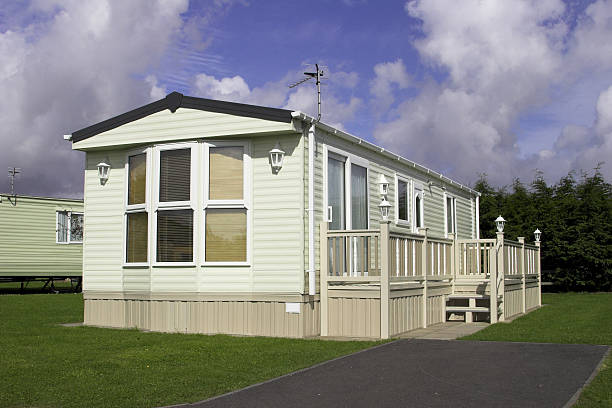
The average rent in the country, for renting land in a mobile home park, stands at $300 per month.
Although a mobile home park in Cedar Springs, MI will cost less for the first few months, it can be expensive in the long run.
This is because manufactured homes in home parks depreciate at a faster rate.
If you have a house on your own land, however, you will likely never see it depreciate.
With that said, many manufactured home communities have exciting amenities that you can consider, including:
● Playgrounds
● Social events
● Shopping centers
● Recreational facilities
● Swimming pools
However, there are risks associated with having a mobile home in a park:
● The landowner might decide to sell it to a property developer, which could put you in a tough spot if you need to relocate your house
● Your monthly rent might be increased, forcing you to pay more
● You might be forced to sell your house and fail to find a suitable buyer
Installation and Delivery
You should also consider the installation and delivery of your house. A mobile unit must never be installed on the ground that is thawing snow or softened by rain.
Delivery should at least wait until the ground hardens enough. The good thing is that a mobile home mover is an expert that can determine when it has hardened enough.
Home Financing Options
Most manufactured home buyers can finance their homes. However, unless the mobile home is on a permanent foundation, these homes are not considered equivalent to a site-built home in the eyes of lenders.
They are viewed as personal property, thus mobile home loans have higher interest rates. The interest rate for the home loans is at least 5%, in most cases.
One common type of loan that you can select is the FHA loan. With these, some lenders could require up to 20% down.
There are also chattel loans. Chattel mobile home financing loans are personal property mortgages that you can use to finance your house. They have a lower interest rate than normal lendings, with the rates ranging anywhere from 1% to 5%, on average.
How to Purchase a Used Mobile Home
We have explored almost everything except how to buy used mobile homes for sale in Cedar Springs, MI.
As mentioned before, manufactured housing units are considered to be personal property, and not real property.
Due to this, these homes depreciate at a higher rate over time.
A used house is cheaper compared to a new one, meaning that you should go for one if you are looking for the best bang for your buck.
You should also go for a used house if you are not so sure of the length of time you will live in the house.
You might be wondering how much a used mobile housing unit costs.
The price of these homes varies depending on several factors, including:
● The location
● Available amenities
● The current house condition
We here at Cedar Springs Mobile Estates offer some of the best mobile homes for sale and mobile homes for rent in Cedar Springs, MI. Contact us today or pay us a visit to find the home of your dreams.
Read more


